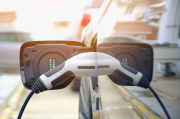 The UK government is banning the sale of petrol, diesel and hybrid cars in 2035, which should lead to a boom for the EV market. Will the UK play a big part in developing EV technology?
The UK government is banning the sale of petrol, diesel and hybrid cars in 2035, which should lead to a boom for the EV market. Will the UK play a big part in developing EV technology?
What is the ICE vehicle ban?
The ICE (internal combustion engine) vehicle ban, set to come into law in 2035, will prohibit the sale of all new petrol, diesel and hybrid cars in the UK. This means that, after 2035, consumers will only be able to buy electric or hydrogen vehicles from manufacturers, though the sale of second-hand cars will still be legal, as will driving the car you already own.
The implementation of this ban has been brought forward from 2040, after experts warned that the original date would be too late for the ban if the UK government wants to hit the target of zero carbon emissions by 2050.
More surprising than this date being brought forward is the inclusion of hybrid cars in the ban, which weren’t affected in earlier plans. The reason for this is that hybrid cars may actually not be as green as previously thought, and recent studies have shown that they can emit more CO2 than ICE cars due to the extra battery weight.
What infrastructure will be required before the ban?
Whilst this ban makes great strides towards sustainability, there is much that needs to change before production is halted in 2035. Being able to continue driving existing ICE vehicles (as well as buying and selling them) after the ban will prevent any real crisis on a consumer level, but for the UK to reach net zero, more needs to be done.
Charging Points
The current lack of charging points is the biggest obstacle standing in the way of a mass rollout of EVs. It has been estimated that there will need to be 25,000,000 charging points for EVs in the UK, but there are currently only around 11,000 places where EVs can be charged. There has been significant investment in creating new public charging points, but the options for those in many rural areas are still lacking.
Due to the time it takes to charge an EV, many people will prefer to charge them overnight. For this to happen, there needs to be more investment put into charging points for homes, as well as a solution for street parking for those who don’t have parking spaces on their property.
Affordability
Another issue that has been raised when it comes to the ICE ban is that electric vehicles currently aren’t affordable for many people. It has been projected that, by 2025, the cost of EVs will be comparable to that of ICEs when it comes to new vehicles, but there isn’t currently much of a market for second-hand electric cars. This means that a significant portion of the market will probably still be using ICE cars once the ban comes into effect.
The reason that EVs are more expensive is because the battery technology needed is still being developed, and this process uses a lot of costly materials. We can’t realistically expect the price to drop significantly until an affordable solution has been reached for EV batteries.
Scrappage scheme
People will also likely need to be incentivised to make the switch to an electric car, and as yet, there is no scrappage scheme or similar to encourage people to trade in their old ICE vehicles. Whilst this is an issue primarily for the government rather than the EV and electronic components industries, it will affect the number of consumers willing to make the switch.
Will UK manufacturers be involved?
The ICE vehicle ban is an opportunity, rather than a problem, for the electric vehicle market, if businesses prepare thoroughly and are willing to invest significant resources. The EV market has been experiencing steady growth so far, but there is likely to be a boom as we get closer to the 2035 deadline.
There is currently a long wait for consumers when ordering a new EV, and there has been a shortage of passive components used across all industries for some time now. Getting these lead times down will be imperative if businesses want to get a head start on the EV market, and will only be achieved through intelligent forecasting of sales, along with the increased production of much-needed components.
Further than just the vehicles themselves, the ICE vehicle ban could present wider opportunities for OEMs and supply chains. As mentioned earlier, the UK is still far below where it needs to be in terms of charging point availability, and the length of time it takes to charge an EV still needs to be improved.
It’s also worth noting that the 2035 pledge by the government is just one step (albeit a big one) towards a target of net-zero emissions. Only a third of carbon emissions from the UK come from transport, with the most emissions coming from energy generation on both an industrial level and in the home. Solutions to tackling this could also be an opportunity for manufacturers.
The ICE vehicle ban should encourage UK electronic component businesses, as the EV market is still relatively young. This is an opportunity for the UK to become a leader in EV production, as there will be a worldwide need for EV components as more countries impose similar laws in the near future.
For more information on Delta Impact, click here.



